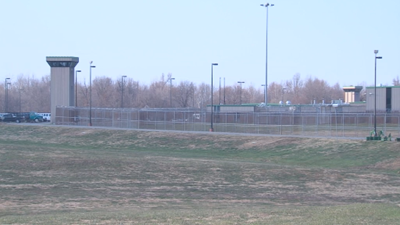SPRINGFIELD, Ill. (WAND) — Illinois will make historic improvements to the mandatory supervised release system under a new law taking effect January 1. Sponsors say the criminal justice reform is critical as the current system leads many people back to prison far too often.
More than 100,000 people are currently on probation, parole or mandatory supervised release in Illinois. Yet, the Pritzker administration knows roughly 25% of those Illinoisans return to prison within three years of release due to non-criminal violations.
"That's not a system designed to improve public safety," said Gov. JB Pritzker. "That's not a system that's promoting rehabilitation. It's a system that values re-incarceration."
This new law will expand job training and education opportunities to help move people out of supervised release sooner. Sponsors believe this change can reward people for accountability and encourage self-improvement.
"Policy is real because people have decided to lean in and they decided to lift up their voices, lift up their power and lift up their experiences," said Rep. Jehan Gordon-Booth (D-Peoria).
The plan will standardize timelines to review probation and encourage law enforcement to recommend early termination of supervised release.
Rapper Meek Mill has become a strong advocate for criminal justice reform following his own frustrating experiences in the system. The celebrity was convicted on drug and firearm changes in 2008, but Mill was placed on a lengthy probation despite serving eight months in prison for those charges. Mill was arrested twice in 2017 for popping a wheelie on a motorcycle in New York City and getting into an altercation in a Missouri airport.
Both of those questionable charges were dismissed, but a Philadelphia judge sentenced Mill to two to four years in prison for violating his probation. While Mill was released on bail, he stressed that so many other Black and brown people face similar issues and can't pay their way out. He now helps lawmakers across the country pass criminal justice reform with his organization REFORM Alliance.
"All I had was music, and I helped inspire a lot of people and get them through a lot of times," Mill explained. "But now, I've got something real that I can actually say that I do besides I got my mom out of the hood. I actually help change laws and help get people out of prison that don't belong in prison."
The law also states that drug tests will only be required before parole hearings if there is reasonable suspicion of illegal drug use.

IDOC implemented its mail scanning emergency rule August 14 to prevent drugs from entering facilities, leaving lawmakers confused about the long delay before prisoners actually started to receive mail on tablets.
Senate Bill 423 will also require the Prisoner Review Board to provide a list of steps or requirements a person must complete to be granted early discharge. People on parole or mandatory supervised release can petition the review board to grant them early discharge once they meet those requirements.
"Bettering yourself, taking the steps to grow, and learning how to productively contribute to your community, well that's nearly impossible if you don't have the road map or support structure to help you move forward," said Lt. Governor Juliana Stratton.
The legislation passed unanimously out of the House and Senate this spring.
"This is common sense evidence-based criminal justice reform that improves public safety, decreases taxpayer costs, and lowers the likelihood of re-incarceration," Pritzker said.
Copyright 2023. WAND TV. All rights reserved.











